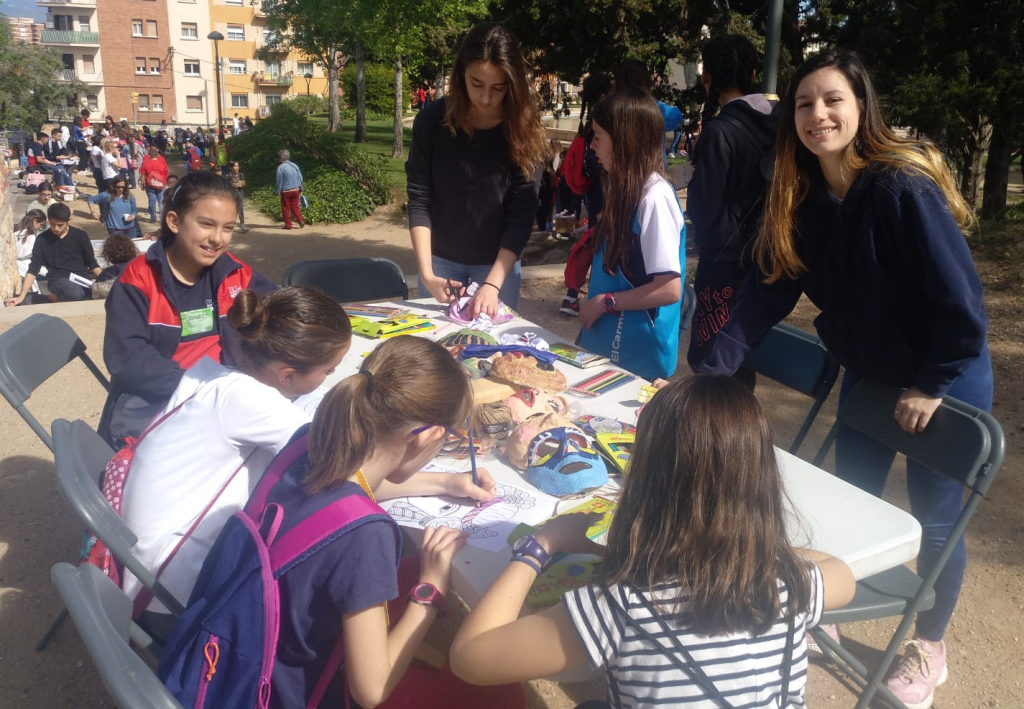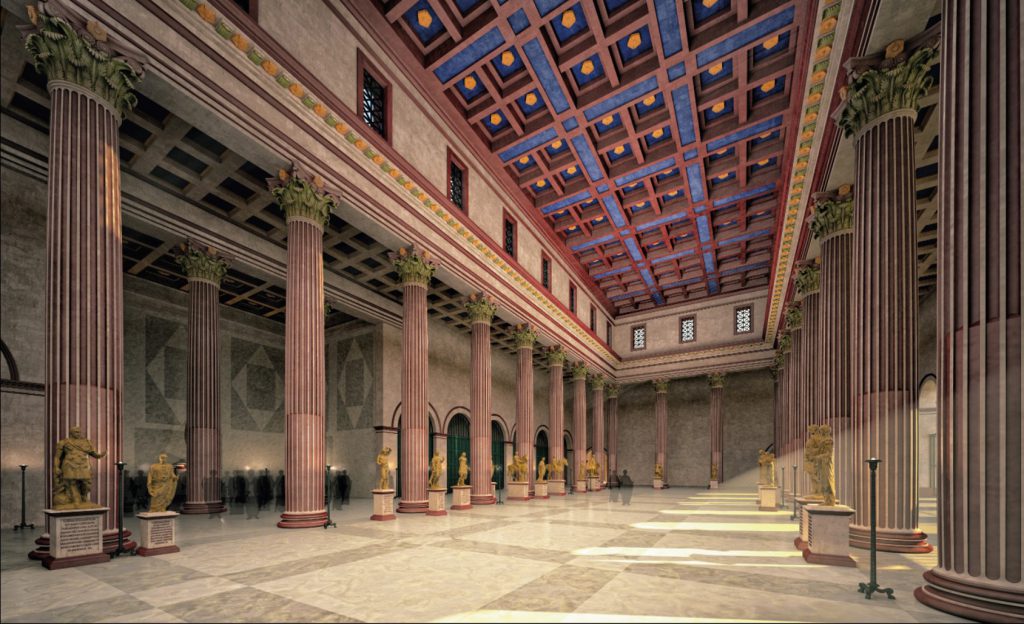09/05/2019
Researchers, students and the Aula de Teatre of the URV participate in the 21st edition of the Tarraco Viva Festival
A series of activities took place from 5 to 19 May to inform people about urban life in classical antiquity

A series of activities took place from 5 to 19 May to inform people about urban life in classical antiquity
“In Roman cities, there were often better opportunities for business, good opportunities for professional change, more room for public life and, let’s not forget, also better entertainment than in the countryside,” said historian Geza Alföldy (1935-2011), honorary doctor at the URV. This is the world that the 21st edition of Tarraco Viva, the Roman Festival of Tarragona, brought to light through conferences, historical recreations and guided visits from 5 to 19 May.
In this edition in particular the research group Ancient Topography Seminar (Setopant), of the URV’s Department of History and Art History has been involved in the design of activities and conferences as well as in the construction of the scenery for recreations. The researchers are specialists in the study of ancient urban life, Greek and Roman architecture, archaeological investigation in urban areas, the application of Geographic Information Systems in Archaeology, and the formulas for the integration of the archaeological remains in the modern city.
This specialisation in geographic information tools tells us what Roman buildings and cities were like and has been used to make a 3D reproduction of Tarraco that can be explored virtually. Part of this work can be seen in the recreation “Forum. The heart of the Roman city,” by the Phoenix Project group, on 10, 11, 17 and 18 May at 21h at the Palau de Fires. This is the legal basilica of Tarraco, which has been recreated on a 1:1 scale.

Of particular among the events that were held were the conferences by URV researcher Joaquín Ruiz de Arbulo on Thursday, 16 May, at 9 p.m. at the Palau de Fires. Together with the director of the festival, Magí Seritjol, he talked about “Rome, the megalopolis of antiquity.” On Friday, 17 May, at 7:30 p.m., at the same site, there was the lecture “Electoral propaganda. Virtues of the candidates and calls to vote in the walls of Pompeii,” and on 18 May was “The discovery of Ancient Rome” at the Praetorium. In addition to Ruiz de Arbulo, fellow URV researchers Ricardo Mar and Jesús Carruesco spoke about “The Roman city and the urban world in the classic Mediterranean” at a round table on Tuesday, 7 May.
Professor Pere Navarro of the Department of Catalan Philology also participated in the festival with his talk “In rusticam romanam linguam. How the Latin language transformed into Catalan,” where he explains how Latin has evolved into Catalan and why some words are used and others are not. The talk will be on Saturday, 11 May at 11:30 a.m. at the Espai Turisme.
For the first time, Professor Genaro González, of the Department of Mechanical Engineering, participates as a lecturer at the Festival bringing the results of his work and of the first year students of the degree in Mechanical Engineering, who have made 3D recreations of the Roman machines used to cut stones based on an illustration found on a sarcophagus. González will discuss the recreations and the improvements that have been introduced to make machines work mechanically. This took place on Sunday, 12 May at the Roman Praetorium.
As every year, the Aula de Teatre of the URV also participates in the Festival. This year they will perform Sero sed non serio, a play about actors touring around Roman cities. Spectators could see what life was like in a Roman theatre company, eat with the actors and see just how difficult things were, a situation which has changed little in certain cultural sectors to this day. The play was performed several times on 10, 11, 12, 17 and 28 May at the Roman Walls at midnight.
As usual in recent years, some 40 first year students from the Bachelor’s Degrees in Infant Education, Primary Education, Pedagogy, and Social Education volunteered for the activity organised by the Learning Field for fifth year pupils in the Tarragonès region. “Let’s play like the children in Tarraco played” was held at the Camp de Mart and invited children to participate in the Tarraco Viva festival by getting them to play like children did in ancient times.
The complete Tarraco Viva programme can be consulted at the festival website.
